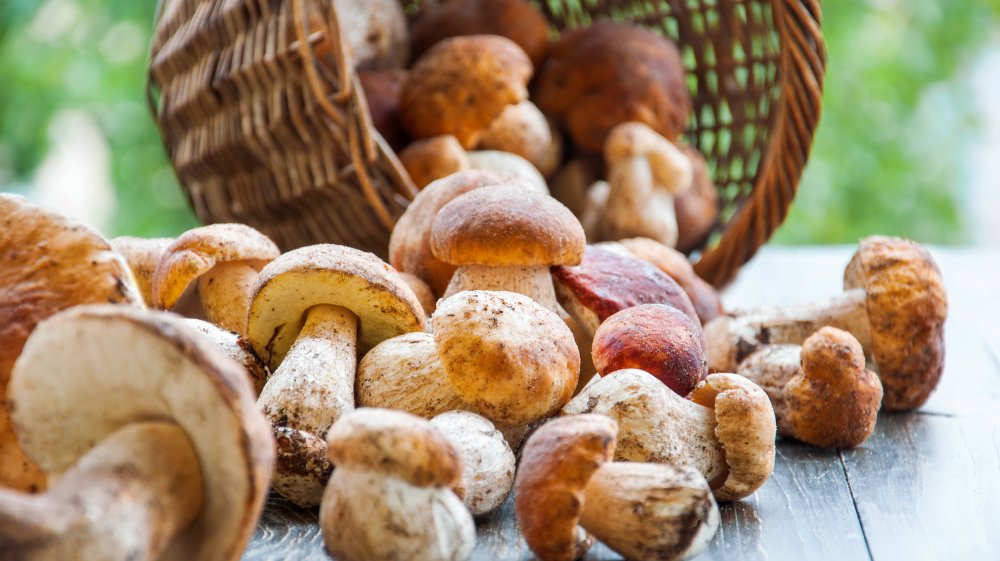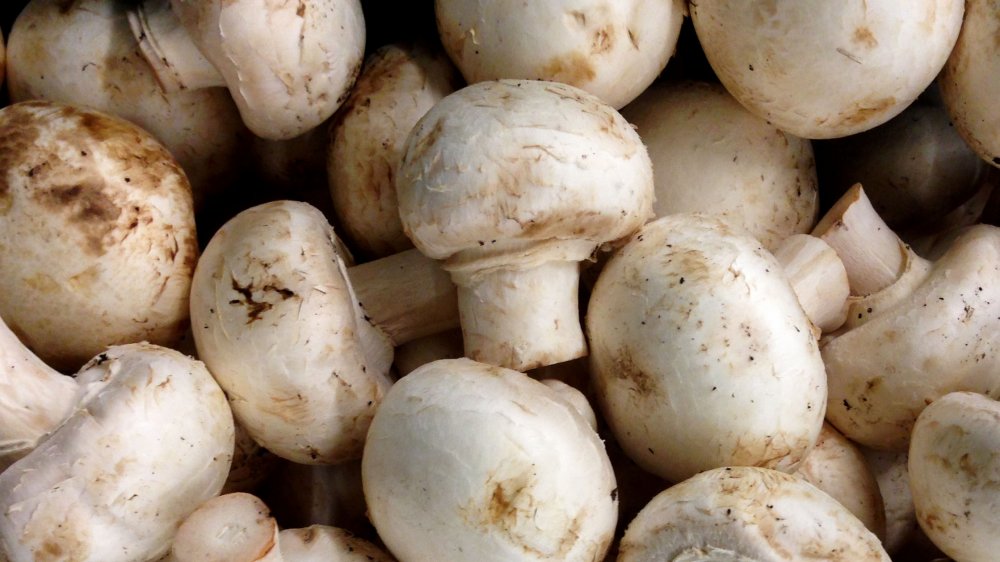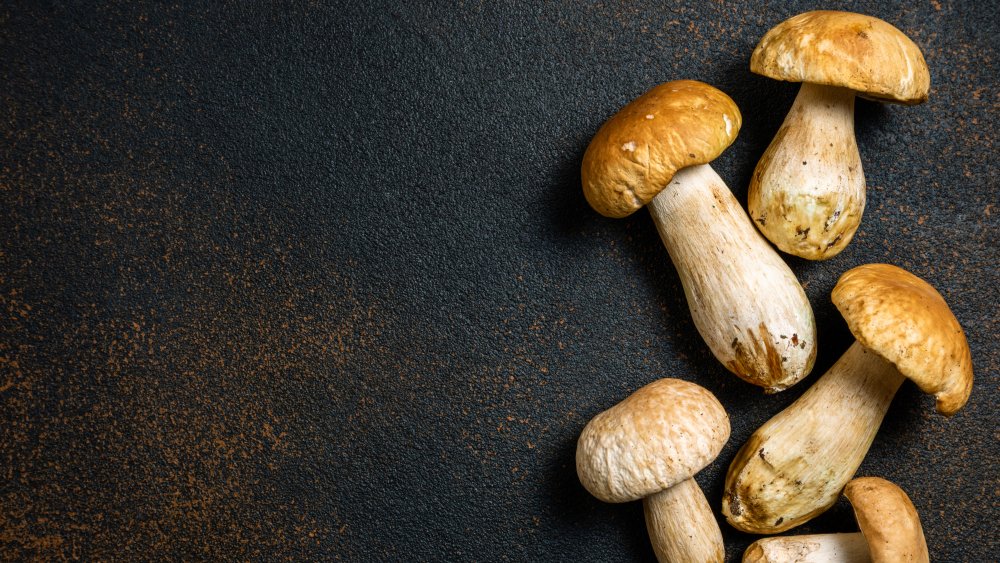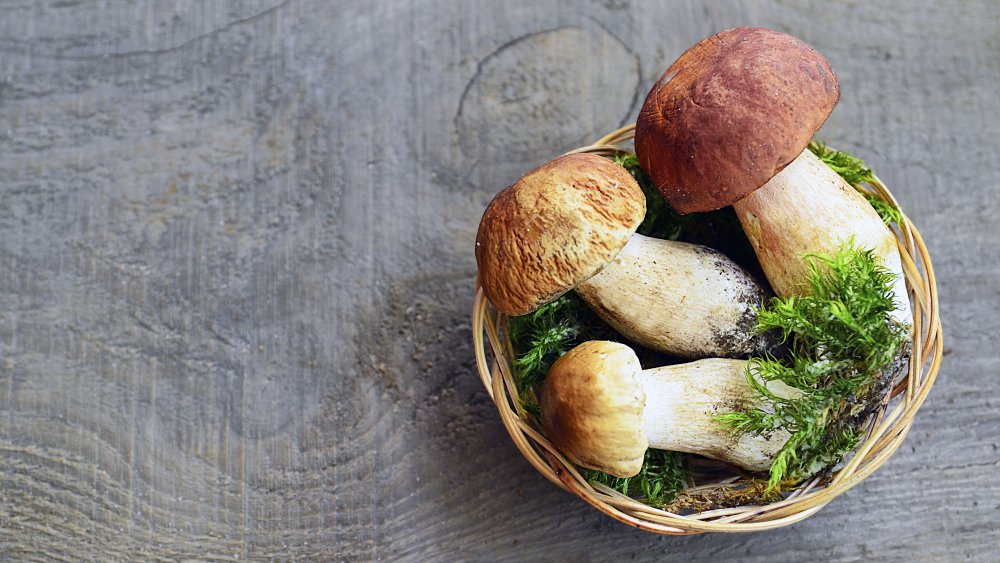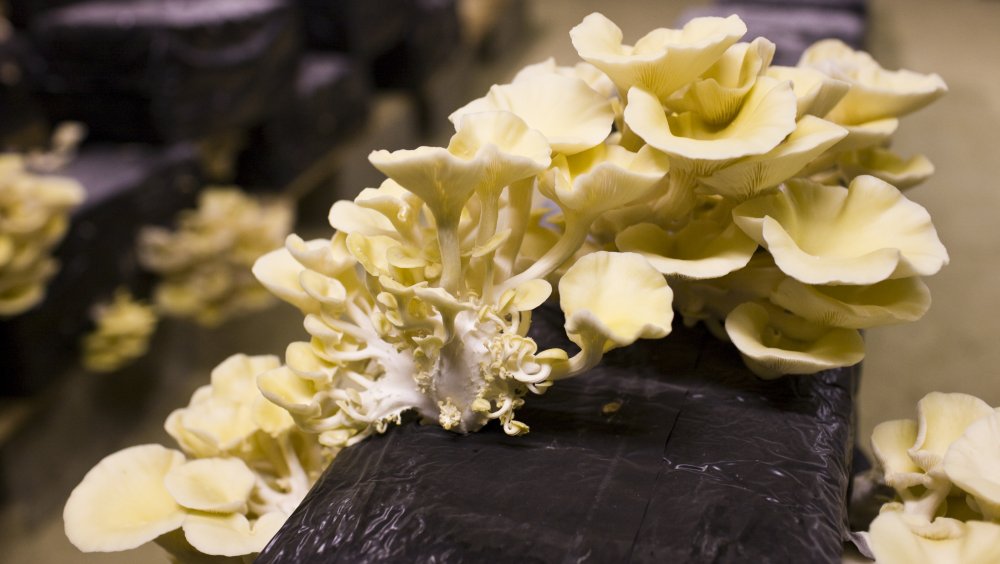When You Eat Mushrooms Every Day, This Is What Happens To Your Body
Mushrooms have a wide range of varieties and an equally wide range of health benefits. They're used in cuisines the world over given their versatility. While the most popular type is the classic and beloved white button mushroom, the name "mushroom" has been applied to a whopping 38,000 types of fungus (via PBS). While in earlier times, eating mushrooms was at times a recipe for disaster — the death of King Charles VI of the Holy Roman Empire may have been attributed to consuming a poisonous variety — given the fact that they are now cultivated rather than foraged, the odds of dying from eating a mushroom (unless you've picked one yourself) are pretty low.
Today, they're thought of more as life-lengthening dietary additions and can aid systems of the body from your head, to the bones in your feet. Here's what happens if you eat mushrooms every day.
You'll get your daily dose of selenium
Mushrooms are a good source of selenium, an antioxidant which aids the body in neutralizing free radicals (via Medical News Today). In every cup of mushrooms, you'll find nearly 9 micrograms of selenium — the daily recommended intake is 55 micrograms. Studies have also found that a higher intake of selenium is linked with a lower chance of a number of cancers including prostate, colon, breast, and lung cancer (via Healthline). It's worth noting that the study made clear the link was only strong when the selenium came directly from food sources, not selenium that came from supplements.
Meanwhile, selenium is also thought to encourage heart health, as studies have found that low levels of selenium result in a higher risk of cardiovascular disease. A group of 25 studies found that a 50 percent increase in selenium levels in the blood corresponded with a 24 percent lower chance of heart disease risk.
You'll get as much potassium as you would eating a banana
In just 2/3 cup of cooked portobello mushrooms, there is about the same amount of potassium as there is in one normal-sized banana (via Healthline). While this is impressive, it doesn't mean that you won't have to eat other foods to meet your recommended daily value of potassium. One cup of portobellos only accounts for 9 percent of the daily value, but it's a good start (via My Food Data). Potassium is helps in regulating heart, nerve, and muscle function. The role potassium plays in muscle function is quite apparent. In fact, if you've noticed that you've been getting cramps while exercising, consider upping your mushroom intake. Since a lack of potassium is one of the things associated with muscle cramps, increasing your potassium intake could help to prevent this painful problem (via Medical University of South Carolina).
Even if you're a vegetarian, you'll get your vitamin D
Mushrooms are one of the only non-animal sources of vitamin D (via BBC). Those grown in ultraviolet light have an even higher vitamin D content (via Mushroom Council). The sunlight transforms a compound found in the mushroom called ergosterol into a rather potent amount of vitamin D. Just one portobello exceeds you your daily recommended value of vitamin D.
Vitamin D is essential for bone health because it helps to encourage the absorption of calcium in the digestive tract (via The National Institute of Health). Although it's mainly thought of as a vitamin that is associated with the skeletal system, vitamin D is also responsible for a host of other functions in the body, including cell growth, immune function, and muscular function. It's also been credited with managing inflammation.
Your brain will thank you
Mushrooms are considered brain food for a number of reasons. In 2019, a study found that seniors who ate at least 300 grams of cooked mushrooms every week were half as likely to have mild cognitive decline (via Tree Hugger). The study took place over the course of six years and studied more than 600 subjects over the age of 60 who lived in Singapore. Scientists believe that an antioxidant compound known as ergothioneine was the reason for the effect. Another study from Penn State University found that ergothioneine in concert with another antioxidant, glutathione, had proven anti-aging effects.
So it seems there is no reason not to pack you next meal — and maybe many meals — with mushrooms!
